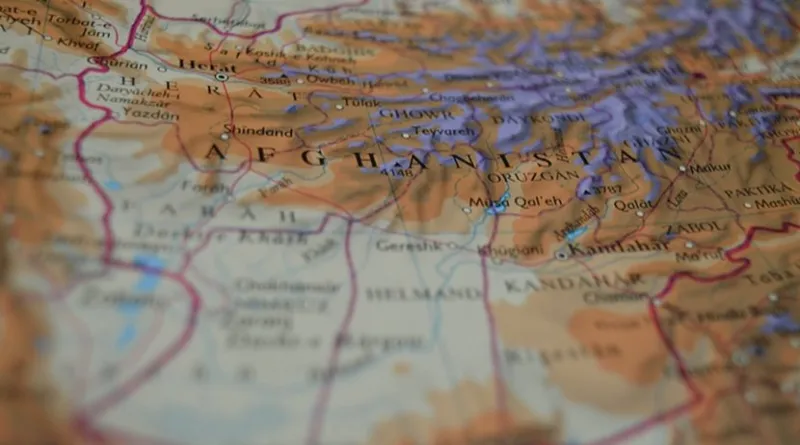What Did Afghanistan Get From OIC’s Extraordinary Session?

On December 19, Pakistan enthusiastically hosted the historic 17th Extraordinary Session of the Organization of Islamic Cooperation (OIC) Council of Foreign Ministers in Islamabad. The session was attended by nearly all member states which discussed humanitarian, financial, and health-related problems concerning the people of Afghanistan and also took some appropriate decisions.
The session was inevitable given the deteriorating situation in Afghanistan. According to the UN, nearly half of the country’s population faces crisis levels of hunger whereas the World Food Program, in October, estimated 3.2 million children in Afghanistan are at the risk of acute malnutrition. Likewise, UNDP predicts that more than 95% of Afghans could plunge into poverty if appropriate steps to curb humanitarian crises are not taken. World Health Organization (WHO) predicts that 1 million Afghan children under five will die of starvation this winter. Additionally, after the Taliban’s return to power, billions of dollars in aid and assets were frozen by the international community, plunging the nation of 38 million into the worst hunger crisis since records began.
The session quite expectedly and appreciably asserted to play a required role in the delivery of humanitarian support on an emergency basis to the Afghans. Members unanimously agreed to establish a Humanitarian Trust Fund, launch an Afghanistan Food Security Program as well as engage with WHO for securing vaccines and medical supplies to address COVID-19 pandemic. Foreign Minister of Saudi Arabia Faisal bin Farhan announced the kingdom would provide one billion Saudi riyals in assistance to Afghanistan while Pakistani foreign minister Shah Mahmood Qureshi recalled the country’s commitment of providing $30m for the Afghans.
The much touted session, however, couldn’t produce desired results and the announcements made from the forum would hardly meet the requirements that Afghanistan is in need of. Only two countries, Pakistan and Saudi Arabia, announced financial assistance but rich Muslims countries such as UAE, Qatar or Malaysia didn’t pledge any financial support. Critics termed the moot another face-saving meeting between Muslim countries indicating the 31-point resolution lacked details on any financial assistance forthcoming from the OIC or its member states and absence of a future road map. Afghanistan’s woes cannot be simply addressed by highlighting the problems it faces but solutions do which were neither discussed nor underscored. Besides, Afghanistan’s foreign ministry is trying to seek legality and a relationship with other nations but forgets to the fact that the international community expects them to adhere to the Doha Agreement and fulfill their commitments. The OIC meeting failed to highlight that aspect either.
The OIC meeting, however, was good on optics. The forum provided Pakistan an excellent opportunity to showcase its priorities as a significant player in Afghanistan and frame its strategic narrative so that it is seen as the primary driver for peace and stability in the neighborhood. The Foreign Office ensured strong participation not just from the member states but also from the P5 countries and other relevant multilateral organizations. Foreign Minister Qureshi shared that the OIC moot paved the way for humanitarian aid to Afghanistan and its people. Besides, United States Secretary of State Antony Blinken lauded Pakistan for successfully organizing the event and used the hashtag #OIC4Afg in his tweet to express his support and solidarity for the cause.
Pakistan as an immediate neighbor to Afghanistan would be the biggest recipient of outcomes of the worsening situation. It has a history of hosting millions of Afghan refugees and another apparent crisis might possibly bring an influx of refugees. And when migrants pour in, the problems multiply from overpopulation to shrinking resources along with unrest and extremism. Pakistan managed to handle all these sorts of problems after years of collective efforts by civilian governments and military leadership but things would be extremely difficult this time around.
The international community must understand that Afghanistan’s troubles would not only bring troubles regionally but it will have global impacts. Recently, foreign minister Qureshi had expressed similar concerns and warned Europe that Afghan migrants would head towards Europe so Western countries should not be under any illusion that the precarious situation in Afghanistan would not have any impact on them. Anarchy in the wake of the humanitarian crisis in Afghanistan would lead to the strengthening of terrorist organizations, he added.
As a host Pakistan got what it wanted from the conference; Islamabad earned praises, respect both from Taliban and global community. But Afghanistan, for which the session was called, probably didn’t get anything significant. Member states shied away from making lofty commitments and hefty aids rather they just emphasized on moral support. The session should have urged the Taliban to fulfill their promises if they really want themselves to be considered a legitimate governing body and to avoid a humanitarian crisis. Yet, under limited diplomatic outreach and resources, Pakistan managed to internationalize the simmering humanitarian crisis in Afghanistan. It remains a collective responsibility of the Muslim world in particular and international community to respond to the apparent crisis.
